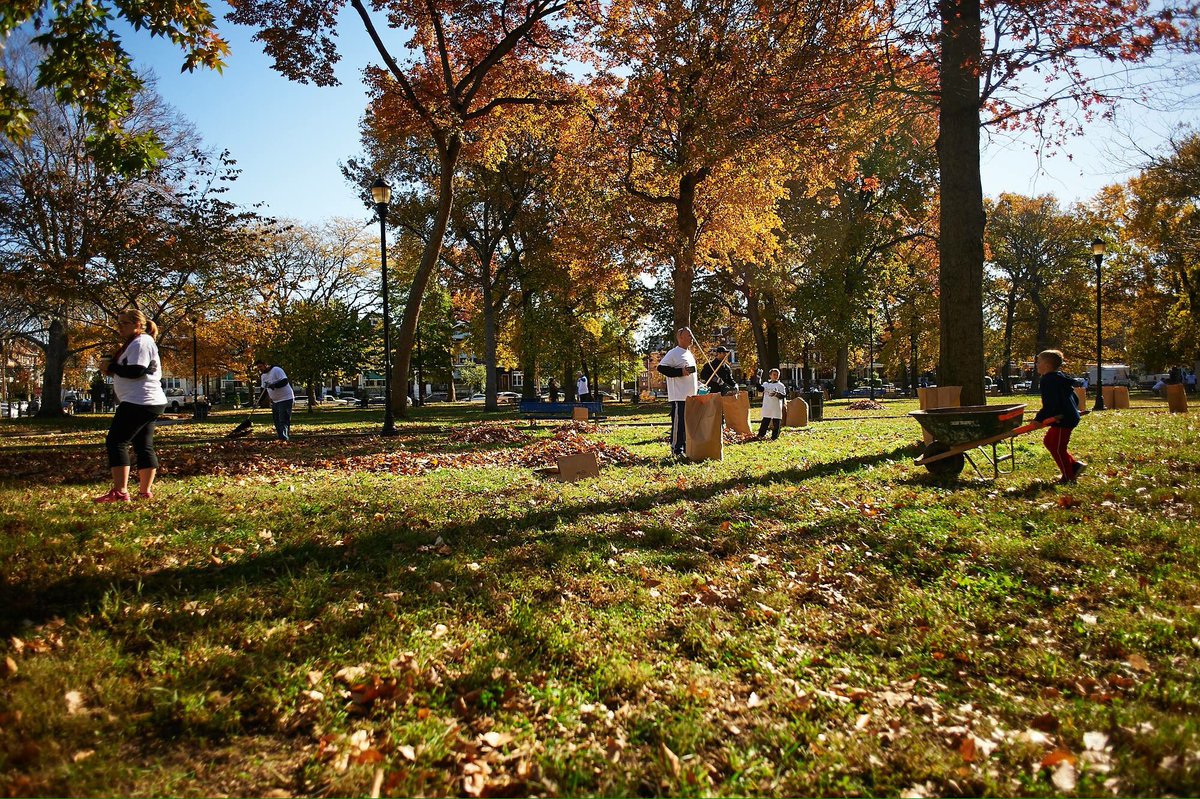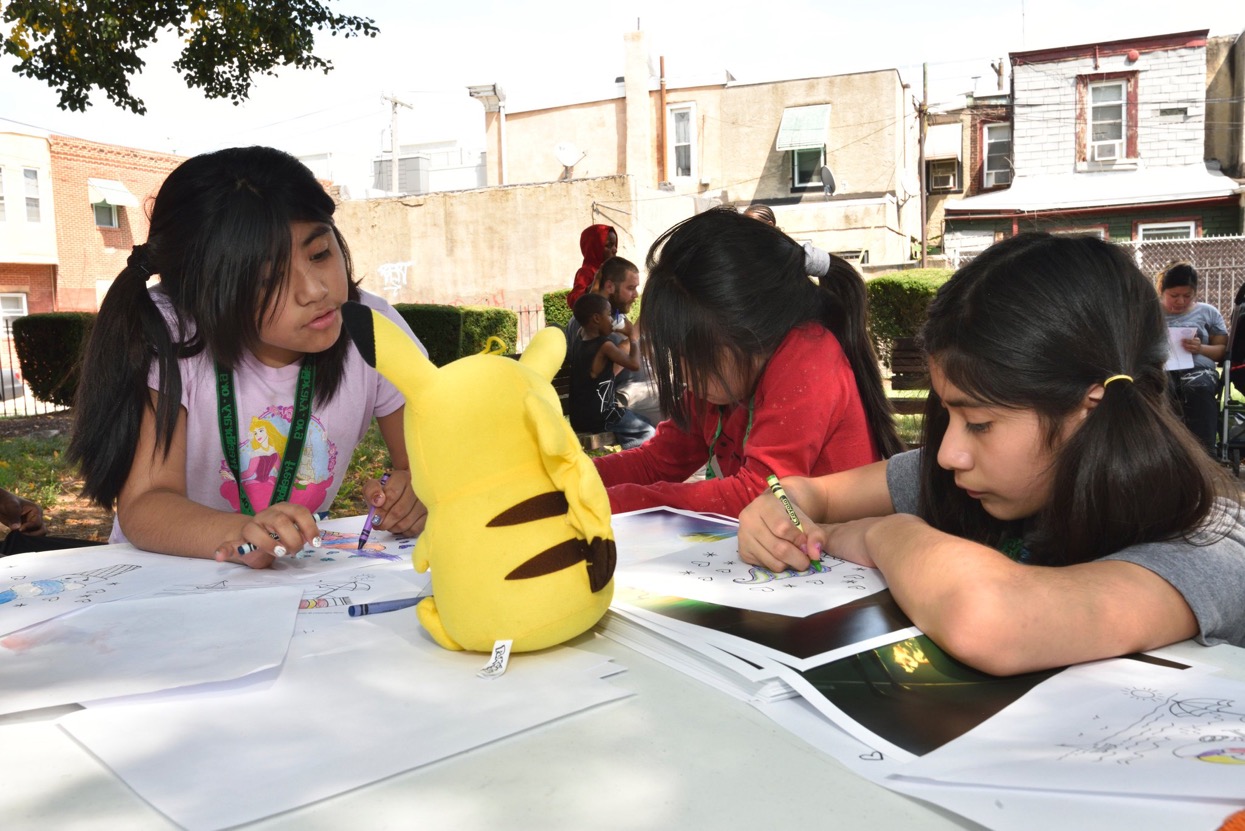To support a collaboration between Detroit Public Television and up to 10 libraries that would leverage the Great American Read and PBS Books to connect local media and literary content to foster greater information sharing and community engagement.
Program Area: Community Impact
To produce and distribute Startup Guide Miami, a handbook that highlights the best of Miami’s entrepreneurial ecosystem, including startups, founders and supporting stakeholders.
To support the 2018 Miami City of Tomorrow Challenge (COTC) challenge in partnership with Miami-Dade County and Ford Mobility.
To commission a series of neighborhood events and new musical works on the 50th anniversary of Dionne Warwick’s ‘Do You Know the Way to San Jose?’
Philadelphia’s public spaces are experiencing a resurgence. From recently opened Lovett Library Park to excitement around the soon to be open Cherry Street Pier, new investments in these community centerpieces have created deeper connections between people and their city and invited a cross-section of residents to participate in building the kind of neighborhoods where they want to live.
At Knight Foundation, public spaces form an important part of our work in cities. Beyond the opportunity to meet neighbors, enjoy local arts and culture and take a jog or spend time with family, they help to strengthen civic engagement and the attachment people feel for their cities — both prerequistes for creating more informed and engaged communities. Recent research by the Center for Active Design reinforces this purpose, showing that public spaces can help to facilitate community connection, trust and involvement.
Philadelphia is paying attention to this opportunity. The city has committed $300 million to public spaces over seven years through the Rebuild Initiative, which aims to revitalize local parks, recreation centers, playgrounds and libraries. The effort expands upon the main goals of Reimagining the Civic Commons, a national initiative piloted in Philadelphia, that seeks to bring people together, by revitalizing and connecting public spaces and countering the economic and social fragmentation that are all too common.
Initially launched in 2014 by the Knight and the William Penn foundations, the initiative has helped local leaders transform five of the city’s neighborhood public spaces. Leaders take risks, scale new ideas and share lessons learned through a growing network of nonprofit, public and community partners. In this way, the approach leverages public-private investments while creating a unique role to help residents shape their city.
Last fall, Knight Foundation doubled down on its public space support in Philadelphia, following up on what we learned from Reimagining the Civic Commons. We announced $3.28 million in new funding to Fairmount Park Conservancy and partners to develop a citywide, civic engagement strategy to connect people to their neighborhoods and to each other. Since then, Knight-funded trainings and activities have helped jumpstart participation and energy around public spaces. This includes the first-ever citywide summit for hundreds of library and public space volunteers and neighborhood partners to come together to share new ideas and learn from each other.
In addition to these broader efforts, locally, we are seeing more community members exercise their civic muscles by volunteering at parks and libraries, creating new community groups to shape activities at rec centers, or getting involved in new art or tech programs in libraries and other public spaces.
Building on this momentum, we have committed an additional $800,000 to four of our Reimagining the Civic Commons partners: the John Bartram Association, Reading Terminal Market Corporation, Centennial Parkside Community Development Corporation, and Mt. Airy USA.
As with our prior investments the funding captures three main themes:
- Using place as a platform: The John Bartram Association will test ideas around the role of public space that are bigger than the space itself, exploring ways to make historic Bartram’s Garden a destination for civic enagagement. It will work to create a space that puts residents at the center of planning efforts to redevelop their neighborhood and waterfront, and where those concerned about challenges, such as displacement and gentrification, can discuss and take action on these efforts.
- Building community through public space: Mt. Airy USA and the Centennial Parkside Community Development Corporation will explore public space programming and activities aimed at bringing people together and creating long-lasting community connection. Both will introduce tools to measure impact and interactions and use results to scale and adjust in partnership with neighbors.
- Advancing creativity and collaboration: Reading Terminal Market will work with partners to reinvent the adjacent Filbert Street through unique public programming and amenities. It will focus on quick, flexible improvements that will invite people onto the street, connect them to a central public space in new ways, and appeal to a growing community of people interested in local food and creative endeavors.
Linking these investments is an on-the-ground effort to better understand how public spaces can help sustain a community’s engagement in issues important to them. Through this exploration, shared lessons and real-time experiments, we hope to invite all Philadelphians to build a stronger city.
Patrick Morgan is the program director for Philadelphia at Knight Foundation. You can reach him at [email protected] or follow him on Twitter at @PMorganPHL.
R
-
Community Impact / Article
-
Community Impact / Article
-
-
Community Impact / Article
G
To support the start-up of a public food market in downtown Akron’s to bolster the city’s revitalization efforts.
To build the capacity of San Jose’s community organizations working in support of parks and public spaces.
To increase the capacity of a neighborhood development organization to effectively share information with residents and property owners amid several, high-profile public, private and philanthropic development projects.
To support Endeavor Miami in producing an Endeavor Insights report that will assess the state of Miami’s entrepreneurial ecosystem, specifically which sectors are best primed for success.
MIAMI – May 16, 2018 – Twenty community leaders from cities across the United States have been selected to participate in the 2018 Emerging City Champions fellowship program. The program provides leadership development and funding for young civic innovators with unique solutions to improve public spaces, transportation and civic engagement in their cities. Now in its fourth year, the program is led by 8 80 Cities, a nonprofit organization based in Toronto, Canada, and funded by the John S. and James. L. Knight Foundation.
Emerging City Champions is open to young people between the ages of 19-35 in the 26 communities where Knight invests. Each year, hundreds of people apply to participate in the program. Submissions are evaluated based on the potential impact of the project idea, demonstrated capacity and leadership qualities of the applicant and level of innovation applied to the challenge.
The successful applicants receive $5,000 to implement one project and are supported with ongoing mentorship and leadership training for one year.
“In order to create cities that reflect the needs and preferences of the people who live within them, we need to tap voices from within. The Emerging City Champions program works to advance this goal, providing an outlet for rising local leaders to build ideas that make their city better. We are excited to see the impact that this new group of champions will bring to their communities,” said Lilian Coral, Knight Foundation director for national strategy.
Participants of this year’s program will bring diverse talents and experiences to their work as Emerging City Champions. Many will build on their ongoing work in their communities, while others are starting new ventures with support from the fellowship program.
“Each year, the Emerging City Champions bring bright ideas, enthusiasm and unique perspectives to tackle pressing challenges and needs in their communities,” said Amanda O’Rourke, executive director of 8 80 Cities. “Past participants have exceeded our expectations with their creative and low-cost, but highly impactful projects for improving public spaces, mobility and civic engagement. This year’s cohort is an impressive group, and we look forward to seeing how this opportunity brings their ideas to life and also gives them new tools and experiences as leaders in their communities.”
The 20 participants will meet in Toronto, Canada, for the Emerging City Champions Studio. From June 15-19, participants will meet with established city builders and program alumni, visit examples of innovative public spaces in Toronto and develop their project plans. The Studio provides an opportunity for participants to strengthen project management, communications and community engagement skills that will help them hit the ground running when they return to their cities. The Studio also creates a collaborative environment where participants bond with one another and establish a support network of their peers.
The Emerging City Champions will begin implementing their projects after returning home from Toronto. In one year, their cities will have new and enhanced public spaces, programs and organizations to create more vibrant and successful communities.
More information is available at www.emergingcitychampions.org.
2018 Emerging City Champions
Aberdeen, South Dakota
- Matthew Klundt will create an escape room game in downtown Aberdeen where players will participate in a hands-on class deconstructing the methods and means of how it was made.
Akron, Ohio
- Josy Jones will work with community members to create a series of live theatre events that celebrate the stories and history of their neighborhood.
- Kai Wick will launch Interactive Bus Stop, a placemaking project to improve the experience of using public transportation by bringing playful and interactive interventions to bus stops across the city.
Charlotte, North Carolina
- Amir Naeem will bring jukeboxes to public spaces along the light rail transit line that will play music after users provide an idea or thought about the community.
- Christine Edwards will develop a toolkit and event series that will provide information to make it easier for residents to interact and connect with Charlotte’s municipal government.
Detroit, Michigan
- Alexis Adams-Wynn will host Comedy Commons, an annual comedy show filled with jokes and roasts about the human experience of being neighbors across Detroit’s MorningSide, East English Village and Cornerstone Village neighborhoods.
- Timothy Jackson will repurpose vacant lots into pollinator way-stations that will support the development of native plants and provide horticulture education and therapy opportunities for residents
Grand Forks, North Dakota
- Emily Montgomery will launch an interactive and engaging art installation that will be created through a participatory outdoor art studio on a downtown sidewalk and alleyway.
Lexington, Kentucky
- Rebekah Radtke will lead a collaborative design process to activate an underutilized lot and create a community gathering space between the University of Kentucky campus and downtown Lexington.
Macon, Georgia
- Tonja Khabir will support residents of the Pleasant Hill community in re-envisioning a cultural asset through collaborative planning, a block party event, arts-based programming and simple streetscape improvements.
Miami, Florida
- Trevor Ditzler will temporarily close a portion of NW 79 Street to cars to host a community-led event featuring fun programs for people of all ages with the purpose of sparking new ideas and solutions to improve safety and accessibility in the neighborhood.
Philadelphia, Pennsylvania
- Dena Ferrara Driscoll will develop a temporary storefront to serve as a public space where visitors can incubate ideas, build relationships and develop solutions to address persistent city challenge related to urban planning, transportation and governance.
- Hanae Mason will lead a collaborative process to transform Lovett Library Park into an inclusive and accessible public space through organic and scheduled events and activities.
- Gabriela Sanchez will produce a multi-disciplinary live theatre program in a public space that will create culturally-resonating performances that celebrate the voices of women and girls of color and foster intergenerational dialogues.
- Kyree Holmes willcultivate talent in young people to prepare them for careers in the user experience field by providing formal training where participants co-develop design solutions for real-life challenges in the city.
St. Paul, Minnesota
- Elizabeth Zalanga will create a cohort-based mentorship and training program for high-school girls from underrepresented and underserved backgrounds that equips them with the knowledge, skills and confidence to become the next generation of civic leaders
San Jose, California
- Emily Schwing will pilot a new visitor’s map for Emma Prusch Farm Park in East San Jose that will offer visitors fun and engaging suggestions on what to do or see in the park and surrounding neighborhoods.
- Matthew Quevedo will work with residents to collect and share unique stories that celebrate the history and cultural identity of various communities across the city.
- Viviane Nguyen will work with residents and collaborate with local governments to develop strategies for using Rock Springs Park as a hub for information and interventions that will mitigate flood impact in the neighborhood.
State College, Pennsylvania
- Samuel Lapp will create a pop-up music truck with a mobile stage and recording studio to encourage collaborative music creation and host live performances in parks and public spaces throughout the city.
About 8 80 Cities
8 80 Cities is a non-profit organization that exists to safe and happy cities that prioritize people’s well-being. We believe that if everything we do in our public spaces is great for an 8 year old and an 80 year old, then it will be great for all people. For more information, visit 880cities.org.
About the John S. and James L. Knight Foundation
Knight Foundation is a national foundation with strong local roots. We invest in journalism, in the arts, and in the success of cities where brothers John S. and James L. Knight once published newspapers. Our goal is to foster informed and engaged communities, which we believe are essential for a healthy democracy. For more, visit knightfoundation.org.
-
Community Impact / Press Release
-
Community Impact / Article
-
Community Impact / Article
-
Community Impact / Article
To strengthen technology expertise within the U.S. Congress by supporting the expansion of the Congressional Innovation Fellowship which places technologists in congressional offices of both major political parties.





